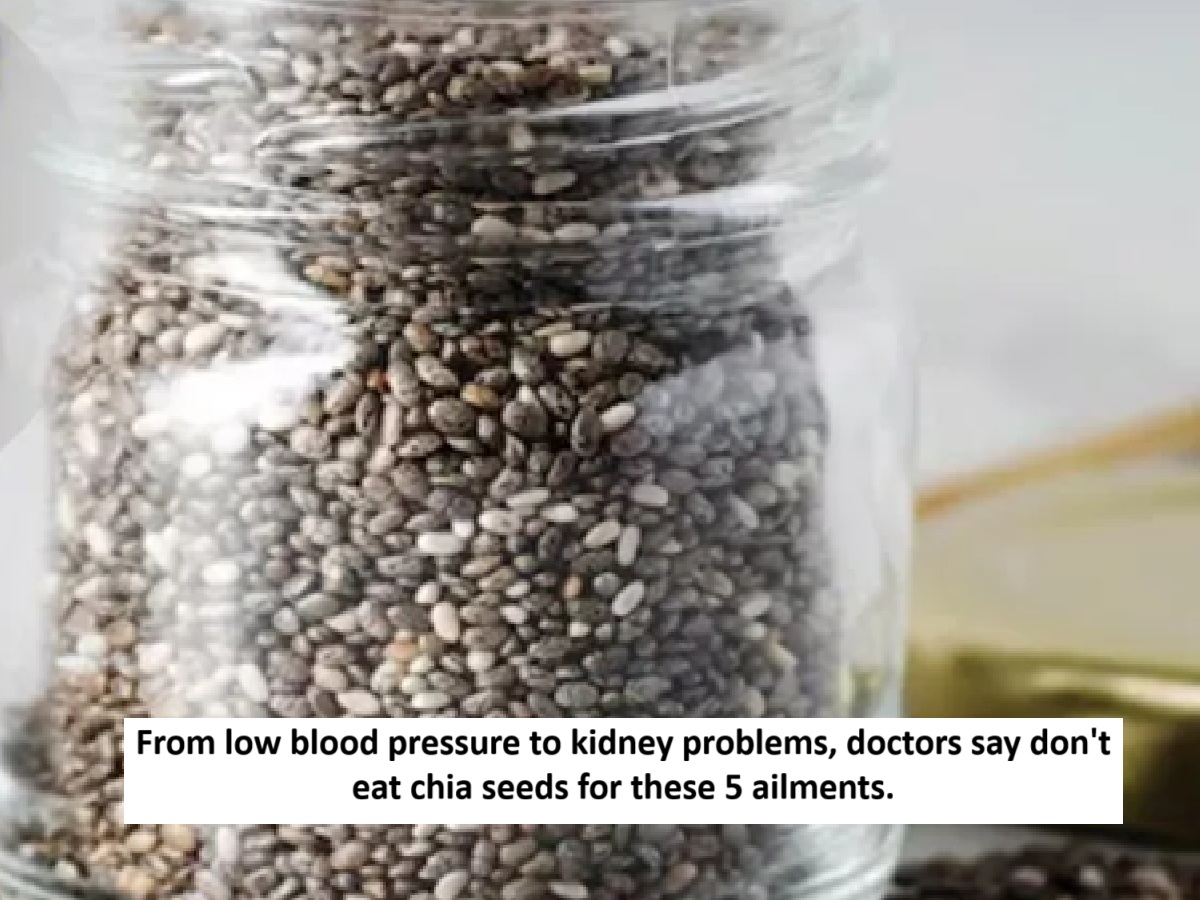
News Topical, Digital Desk : Chia seeds are a hot topic these days on social media and health blogs. Some call them a "superfood," while others praise them for everything from weight loss to heart health.
People with low blood pressure should be cautious
If you already have low blood pressure, chia seeds may cause problems. They are high in potassium and omega-3 fatty acids, which can further lower blood pressure. This can result in weakness, dizziness, and fatigue.
Gas or bloating problems
If you already have stomach problems—such as gas, stomach pain, or IBS (irritable bowel syndrome) , chia seeds may worsen your condition. They are high in fiber, which can cause stomach cramps, fullness, and discomfort in some people.
People taking blood thinners
People taking aspirin or other blood-thinning medications should limit their intake of chia seeds, or only consult a doctor. The omega-3 fatty acids in chia seeds can further thin the blood, which can increase the risk of bleeding or excessive bleeding during an injury.
Harmful in kidney related problems
People with kidney disease should avoid chia seeds. They are high in potassium, phosphorus, and oxalates, which put additional strain on the kidneys and can increase the risk of kidney stone formation.
People who drink less water
Chia seeds have the ability to absorb water. If you don't drink enough water after eating them, they can swell in the stomach and interfere with digestion. This can lead to swallowing difficulties or acidity.
How much and how to take chia seeds?
If you're completely healthy and want to consume chia seeds, 1 to 2 tablespoons a day is sufficient. Always consume them soaked in water or liquid, and drink plenty of water throughout the day.
Chia seeds are undoubtedly rich in nutrients, but every body's needs and reactions are different. So, don't blindly consume them based on the "superfood" tag; instead, use them based on your health, medical history, and doctor's advice.
Read More: Could relying solely on the HbA1c test for diabetes be wrong? Learn the truth from an AIIMS doctor.
--Advertisement--

 Share
Share



